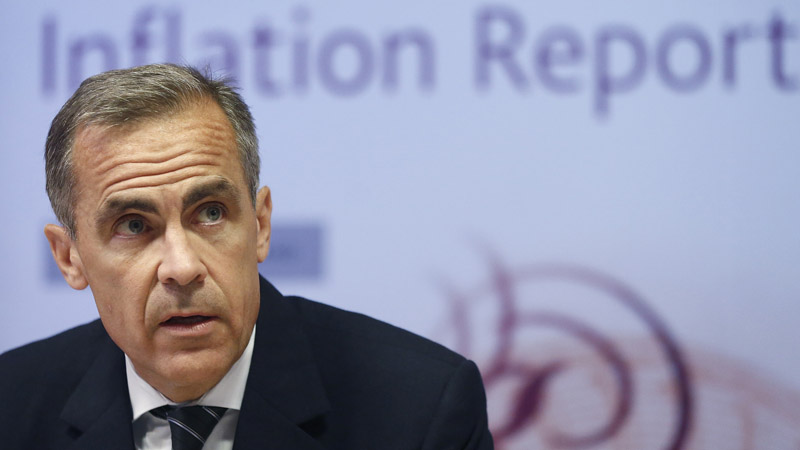Mark Carney has revealed he will extend his term as Bank of England governor till 2019.
The Canadian had come under pressure from Brexit advocates – angered by his warnings about the economic impacts of leaving the EU – to step down in 2018.
But in a statement on Monday he said he would serve till the UK leaves the European Union – likely to be mid 2019. Prime minister Theresa May expressed support for Carney to complete his term.
It’s a big deal for the UK government, keen to show stability following June’s Brexit vote, which has seen the value of sterling slump.
It’s also a big deal for climate change: since assuming office Carney has offered increasingly strong warnings of the financial risks linked to a warming world, notably in September 2o15 when he spoke of the risk that fossil fuel assets would become stranded.
“There have been few stronger signals to governments of just how serious a problem climate change is becoming than Bank of England Governor Mark Carney’s speech last September,” said the environmentalist Tom Burke in a recent talk in London.
Last month in Berlin in a speech titled “Resolving the climate paradox“, he repeated his concern that failure to act now and cut greenhouse gas emissions would irredeemably impact global markets.
“The catastrophic impacts of climate change will be felt beyond the traditional horizons of most actors including businesses and central banks,” he said.
“Once climate change becomes a clear and present danger to financial stability it may already be too late to stabilise the atmosphere at two degrees.”
Polluting businesses could face legal action in the not-too-distant future he added, with those reliant on high-carbon goods potentially losing value.
Weekly briefing: Sign up for your essential climate politics update
It was the latest in a bunch of interventions Carney has made on global warming. At last year’s Paris climate summit he said it was reasonable to ask business: “What’s your strategy for net zero?”
It was a reference to the proposal subsequently included in the UN’s new climate deal to balance sources and sinks of greenhouse gases by the second half of the century.
“Carney almost single-handedly made the issue of financial climate risks mainstream,” said Nick Mabey, director of the London-based E3G think tank.
The former Goldman Sachs banker has also led a high-profile Financial Stability Board and G20 inquiry into the level of information on carbon risk companies should reveal.
“Access to high quality financial information will allow market participants and policymakers to understand and better manage those risks, which are likely to grow with time,” he said at the study’s launch.
Report: Bloomberg climate taskforce to target financial filings
Recommendations are due in early 2017, and early indications are companies will be encouraged to take part in a voluntary carbon risk reporting system, likely to get tougher over time.
While it was his Brexit warnings that prompted calls for Carney to step down early, his stance on the climate has been noted.
His two biggest critics in the UK are former chancellor Nigel Lawson, founder of the climate sceptic Global Warming Policy Foundation and Jacob Rees-Mogg MP, another who doubts the veracity of climate science.
Nobbling Carney would have won the climate sceptic lobby one of its greatest victories in what has been a slim few years, and deprive those who are concerned about climate risk of an eloquent champion.
Now they’ll have to bear another two years of him warbling on about stranded assets and the tragedy of the horizons. Shame.
